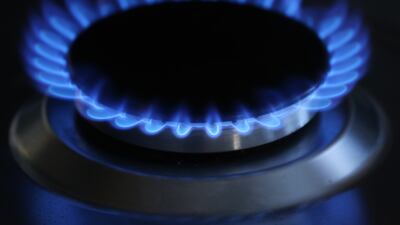A movement to avoid paying utility bills unless the British government scraps the removal of energy price caps this winter has attracted more than 90,000 supporters online.
Backers of the Don’t Pay UK campaign say they will cancel their direct debit payments en masse on October 1 — when energy prices are expected to soar after the price cap is removed — if they reach one million pledges.
However, experts are warning boycotting customers of serious consequences to their actions.
Campaign organisers are hoping a collective boycott on paying utility bills will push the government and energy companies into make bills cheaper amid a cost of living crisis.
Energy regulator Ofgem raised the energy price cap by 54 per cent in April, causing an outcry as tens of millions Britons saw their energy costs shoot up.
Earlier this month, the British oil and gas company BP reported that its profits had tripled between April and June, prompting more public outrage. This follows UK households being told to brace for average annual energy bills of more than £3,600 ($4,359) this winter.
The world’s five biggest oil companies recorded bumper profits of nearly £50 billion this year, leading to fresh demands on the government to raise taxes on the sector.
The Don’t Pay group says its campaign is a “simple” attempt to persuade the government to “deliver affordable energy for all”.
“Millions of people won’t be able to pay [their bills] this winter and thousands will freeze to death in cold homes,” said a representative of the grassroots activist group, who called on the government to “intervene”.
“The only way we will avert this catastrophe is if millions of us refuse to pay these extortionate prices and collectively force them to act in the interests of the people and not the energy industry.”
Don't Pay members they are seeking legal advice on the action and will stop paying their bills only if they secure a “critical mass of people”. However, lawyers have warned customers they may end up with bad credit scores or no energy services at all if they refuse to pay.
Solicitor Gary Rycroft says joining the boycott could have “dire consequences for the individuals concerned”, particularly those on low incomes.
“It could be very lonely and very disastrous for individuals who find themselves in a situation where they’ve got a debt against their names,” Mr Rycroft said. “It would make it potentially difficult to buy a house or rent a house or get another energy contract.”
Citizens Advice says that customers who refuse to pay or agree to a payment plan could be forced to switch to an old-style pre-payment meter, which is more costly per unit of energy used.


